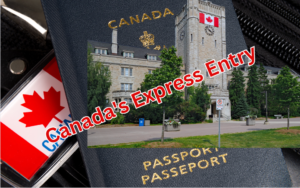Moving to Canada as a nurse can be a rewarding and life-changing decision. Canada’s healthcare system is one of the best in the world, and the demand for skilled nurses is high. This article will guide you through the process of immigrating to Canada as a nurse, including job opportunities, immigration processes, and licensing and certification requirements..
Nurse Job Opportunities in Canada
Canada is experiencing a high demand for nurses. As of now, there are over 11,000 registered nurse jobs available across the country. This demand is expected to grow over the coming years, creating plenty of opportunities for qualified foreign nationals.
| Statistic | Details |
|---|---|
| Number of Registered Nurse Jobs in Canada | Over 11,000 |
| Job Outlook for Nurses in Canada (2019-2028) | 191,100 job openings, 154,600 qualified candidates, shortfall of 36,500 registered nurses |
| Types of Nursing Roles in Canada | Registered Nurse (RN), Licensed Practical Nurse (LPN), Registered Psychiatric Nurse (RPN) |
| Average Salary for Nurses in Canada | Around 66,000 CAD per year |
Immigration Process for Nurses
There are several immigration programs available for nurses who wish to move to Canada. These include the Federal Skilled Worker Program (FSWP), Canadian Experience Class (CEC), and various Provincial Nominee Programs (PNPs).
The FSWP requires at least one year of work experience within the past ten years, and a language benchmark of CLB 7 in English or French. The CEC requires one year of skilled work experience within the last three years, completed in Canada.
PNPs are another viable option. These programs are specific to each province and often target occupations in high demand, like nursing.
Licensing and Certification for Nurses in Canada
Before you can start working as a nurse in Canada, you must be licensed in the province you intend to work in. The requirements for licensure vary by province, but generally, you must have completed a nursing education program equivalent to the Canadian nursing education program, and demonstrate language proficiency in English or French.
You will also need to pass a licensing exam, such as the Canadian Practical Nurse Registration Examination (CPNRE) or the NCLEX exam.
Once you meet the requirements and pass the exam, you can apply for a license through the nursing regulatory body in your chosen province.
FAQs
Q: Can I start the licensing process before moving to Canada?**
A: Yes, most provinces allow you to start the licensing process remotely.
**Q: What is the job outlook for nurses in Canada?**
A: The job outlook for nurses in Canada is very positive. Between 2019 and 2028, there will be 191,100 job openings for registered nurses (RNs), but only 154,600 qualified candidates, creating a nationwide shortfall of 36,500 registered nurses.
**Q: What are the different types of nursing roles in Canada?**
A: In Canada, nursing roles include Registered Nurse (RN), Licensed Practical Nurse (LPN), and Registered Psychiatric Nurse (RPN).
Moving to Canada as a nurse can be a complex process, but with the right preparation and guidance, it’s entirely achievable. With high demand and numerous job opportunities, Canada is an excellent choice for nurses seeking to advance their careers in a welcoming and supportive environment.
Is It Easy for Nurses to Immigrate to Canada?
**Immigrating to Canada as a nurse** isn’t necessarily easy, but it’s certainly feasible with the right qualifications and preparation. Canada values healthcare professionals and offers various pathways for nurses to immigrate, such as the Federal Skilled Worker Program, Provincial Nominee Programs, and the Canadian Experience Class.
Requirements to Work as a Nurse in Canada
To work as a nurse in Canada, you’ll need a bachelor’s degree in nursing or an equivalent diploma, a nursing license for the province or territory you wish to practice in, successful completion of the NCLEX exam, and proof of language proficiency in English or French.
Can a Nurse Migrate to Canada Without IELTS?
While IELTS is a common way to demonstrate language proficiency, alternatives like the Canadian English Language Benchmark Assessment for Nurses (CELBAN) or the Occupational English Test (OET) are also accepted. Some programs may allow nurses to immigrate without IELTS, but language proficiency is still a must.
Age Limit for Nurses in Canada
There is no official age limit for nurses to work in Canada. Nurses of various ages, including those in their 60s and beyond, are actively practicing, although age may be considered based on the job’s physical demands.
Type of Nurses in Demand in Canada
Registered Nurses (RNs), Licensed Practical Nurses (LPNs), and Registered Psychiatric Nurses (RPNs) are in demand across Canada. Specialized areas such as emergency, geriatric care, and surgical nursing are particularly sought after.
Is Canada Looking for Nurses?
Yes, Canada is actively seeking nurses to address a nationwide shortfall and to bolster its healthcare system, especially in the wake of the COVID-19 pandemic.
## Is It Worth It to Work as a Nurse in Canada?
Working as a nurse in Canada can be very rewarding. Nurses in Canada are well-compensated, with an average salary of around 66,000 CAD per year, and they enjoy benefits such as comprehensive healthcare coverage.
Do Nurses Get Paid Well in Canada?
Nurses in Canada are paid well compared to many other countries, with competitive salaries and benefits reflecting the high demand and value placed on healthcare professionals.
Benefits for Nurses in Canada
Nurses in Canada receive numerous benefits, including medical services for themselves and their families, opportunities for further education, and a supportive work environment that values their expertise and dedication.
In summary, while the process to move to Canada as a nurse involves several steps and requirements, the opportunities and benefits make it a worthwhile endeavor for many international nursing professionals.
Disclaimer:
This article is for informational purposes only and not financial advice. Please do your own research or consult a professional before making financial decisions. The writer and publisher bear no responsibility for any potential losses or damages. Any reliance you place on information from canadaeasily.com is strictly at your own risk. Please read our Terms of Service for more information.




